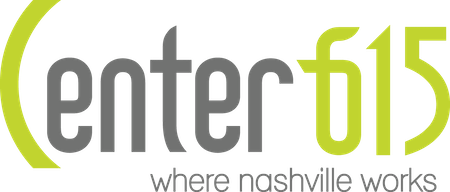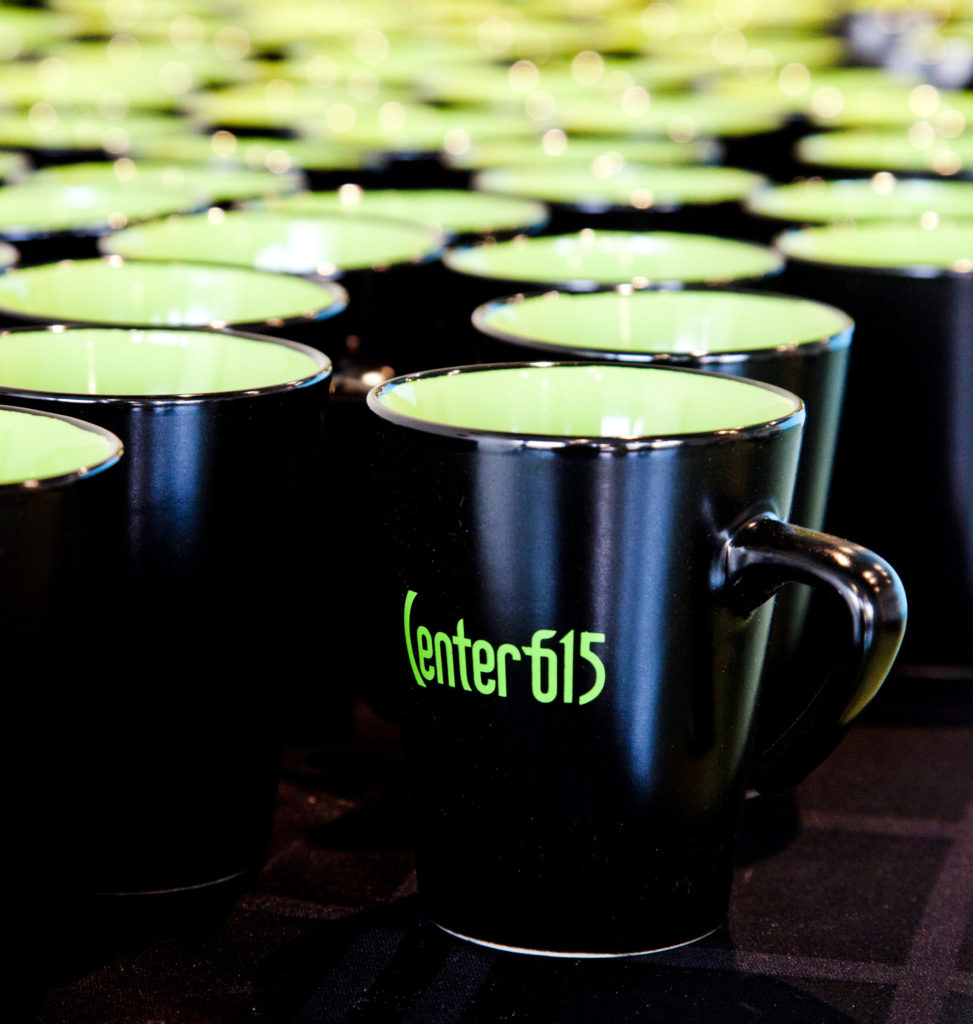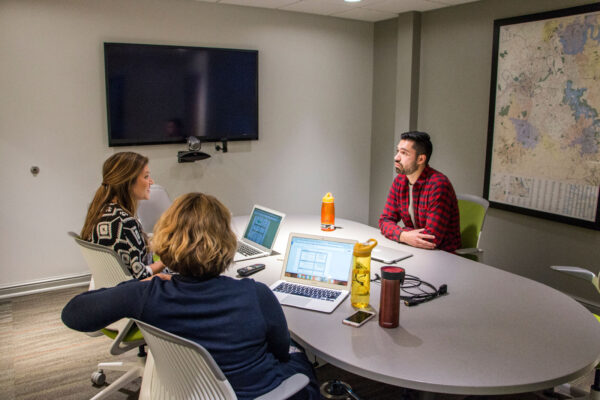“Coffee, the sober drink, the mighty nourishment of the brain, which unlike other spirits, heightens purity and lucidity; coffee, which clears the clouds of the imagination and their gloomy weight; which illuminates the reality of things suddenly with the flash of truth.”
Jules Michelet
Since Center 615 is a coworking space that provides unlimited free coffee and tea to members, it is our responsibility to encourage you to drink responsibly. Yes, our break rooms have had coffee for years now. So, you may be wondering, “why the sudden interest in coffee consumption?”
A headline, “The Invisible Addiction: Is it time to give up caffeine?”, stared right at me through my morning newsletter. I couldn’t resist clicking, and I dived into a rabbit hole of the effects of caffeine on our well-being. Scanning research article after research article, it became clear I had unknowingly been glugging too many cuppas. Now you may be asking yourself, “could I be drinking too much coffee too?” Let’s find out.
As an experiment, the aforementioned article’s author, NYT Best-seller Michael Pollan, quit caffeine. In the article, Pollan notes, “After years of starting the day with a tall morning coffee, followed by several glasses of green tea at intervals, and the occasional cappuccino after lunch, I quit caffeine, cold turkey. It was not something that I particularly wanted to do.” In a later interview about his experience quitting coffee, he expresses, “So when I got off caffeine . . . I realized that my normal baseline consciousness is caffeinated, and the other way I didn’t feel myself. I got used to it, after a month I didn’t crave it. But I missed it . . . There’s just a kind of energetic rhythm to the day that’s defined by our use of caffeine.”
Most of us can probably relate to a soothing caffeine ritual—the way a brew wakes all five senses in the morning, or how a walk to the break room refreshes our mood. Why then, did Pollan reluctantly quit?
He did it in the name of research, for his own book, This is Your Mind On Plants, to understand the power of caffeine’s psychoactive effects. Yes, caffeine is technically a psychoactive drug. While a majority of drinkers think the ubiquitous drug harmless, in “The Invisible Addiction” article Pollan poignantly states, “Daily, caffeine proposes itself as the optimal solution to the problem caffeine creates.” Let’s dive into that problem.
Caffeine blocks the molecule adenosine, a molecule which builds up in our brains throughout the day to prepare us for sleep. By stopping adenosine in its tracks, caffeine helps us feel more awake. However, caffeine does not eliminate adenosine, so the molecule’s levels continue to rise in our brains regardless. Once we metabolize the caffeine, adenosine floods our body’s receptors, and we feel fatigued. In this way, “caffeine only appears to give us energy . . . So the energy that caffeine gives us is borrowed, in effect, and eventually the debt must be paid back,” according to Pollan’s research.
Duly important to note about caffeine is the effect it can have on our sleep quality. In the same article, UC Berkeley neuroscientist Matthew Walker points out that caffeine has a quarter life of 12 hours, which means, “for most people . . . 25% of the caffeine in a cup of coffee consumed at noon is still circulating in your brain when you go to bed at midnight. That could well be enough to completely wreck your deep sleep.”
But why should we care about our sleep hygiene? “The shorter you sleep,” Walker bluntly concludes, “the shorter your lifespan.”
The irony lies in the fact that we drink coffee to wake up and feel more energized, which in turn can hinder our sleep, making us even more tired the next day. Cue more coffee, less quality sleep, and the cycle continues. Meanwhile, we remain unaware of the sole cause of our perpetual drowsiness, believing it to help our problem.
This is why research recommends us caffeine consumers to be aware of both how much and when we drink our coffee or tea, in order to have a decent night’s sleep. For timing, the last drop of caffeine should be consumed a minimum of 6 hours before bedtime. The best amount of coffee someone should drink depends on the genetics of the person, which I’ll dive more into later. But to help you gauge your limits, obvious signs of drinking too much caffeine include heightened anxiety, jitters, nervousness, and elevated blood pressure.
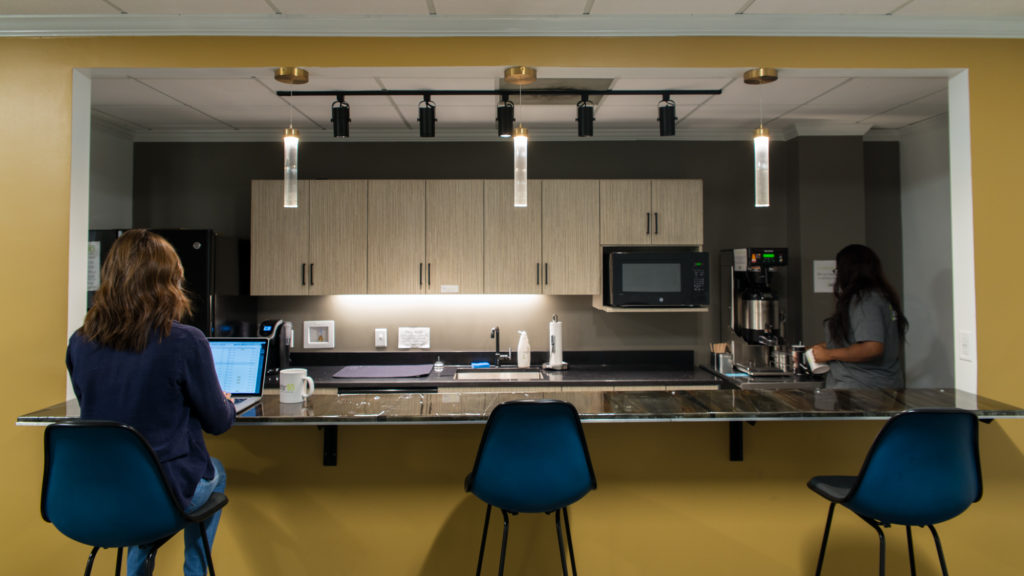
If caffeine is so bad…why do we get hooked on coffee the first place?
Deceptive vigilance aside, there are other reasons we reach for our morning brew.
For sake of not ignoring the obvious, caffeine is a stimulant and can help improve our psychomotor performance and focus. Not only does caffeine block the adenosine molecule, it also increases adrenaline levels. With enough adrenaline, humans are capable of lifting a car (though caffeine alone likely won’t give us that amount of adrenaline).
Drinking coffee and tea has its health benefits too. Studies show moderate coffee and tea consumption to decrease risk of cancers, dementia, and type 2 diabetes, to name a few. Plus, both drinks are excellent sources of antioxidants.
When did we get hooked on coffee and caffeine?
History points to tea and coffee as essential pieces to the Industrial Revolution and Enlightenment period in Europe. Think of how England’s trade with the East Indies, China, and the West Indies, providing British folk with both tea leaves and sugar, coincides with the industrial boom in Europe. Factory workers, philosophers, and every hand in between gripped onto a newfound sippable energy to stay up later, work longer, and focus harder.
But our first encounter with coffee goes back even further to around 800 AD. According to legend, an Ethiopian goat herder named Kaldi first discovered the effects of coffee when he noticed strange behavior among his tribe of goats. Kaldi rightly attributed the jumpy behavior to the wild coffee cherries his goats had eaten.
Local Nashvillians may recognize the name Kaldi from Bongo Java’s roast, Kaldi’s Dog. The name nods to the oft overlooked role of Kaldi’s canine companion, who led the tribe.
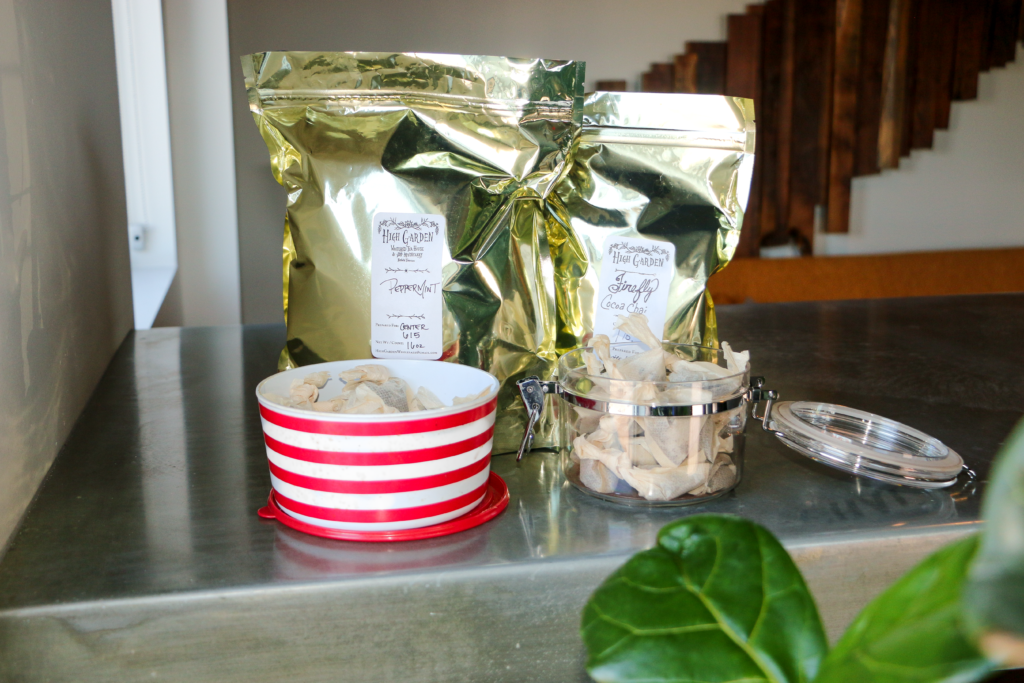
How much coffee should you be drinking?
Now to find out how many pounds of grounds you should guzzle down.
The general consensus is that caffeinated beverages are completely fine for most people to drink in low-to-moderate amounts (or less than 4 standard cups); however, our genes greatly determine our individual tolerance. Research shows that the average amount of time for caffeine to remain in our system is 5 hours, but that can also range from 1.5 hours to 9.5 hours, depending on the person’s genetic makeup and lifestyle.
Since pharmacogenomics is outside of my expertise, I am unable to explain why our genes play such a major role in our reaction to caffeine. Regardless, my piece of advice to coffee and tea drinkers out there is this: listen to your body. If you may be feeling tired throughout the day and feel the need to reach for a cup of coffee every couple of hours (like I did), try cutting back on your caffeine intake for a couple weeks to see if it helps. If you feel especially anxious or have an increased heart rate after drinking caffeine, maybe slow down on the sips.
Fun Center 615 trivia: between 92 offices, 8 Designated Desks, and a handful of Drifter Desk members at Center 615, we go through . . .
- 10 gallons of Nitro coffee from Switters a week (and that’s with a cut-off)
- 10 pounds of coffee grounds from Bongo Java a week
- 8 pounds of black tea leaves from High Garden Tea a year
- 3.5 pounds of herbal (non-caffeinated) tea leaves from High Garden Tea and Rishi Tea & Botanicals a year
…clearly y’all prefer stronger caffeine
TLDR ; Final Thoughts
Coffee conundrum: the more you drink, the worse you sleep, the more you need to drink.
While moderation is key to healthy caffeine consumption, let’s acknowledge life can have other plans, and sometimes you need to stay up late at night with the help of coffee (hence our 24/7 keycard access for members).
Keep in mind that everyone is different. Caffeine metabolism varies from person to person, and so does a brain’s psychoactive response. One person with a high baseline anxiety could become very anxious after two cups, while the next person could have laser-sharp focus on the same amount. Furthermore, one person could drink coffee at 2PM and feel refreshed the next morning after 8 hours of sleep, while the next person could drink coffee at 11AM and feel groggy after 8 hours of sleep. Simply pay close attention to your personal reaction to coffee dosage and timing to determine your limits.
If you think you might be drinking too much or too late in the day, give cutting it back or drinking it earlier a shot and see what happens. And if you think you need more to finish that final proposal with a midnight deadline, that’s fine too.
However, when decaf is what you’re after, we always have an herbal tea option in our break rooms! This summer we have blueberry hibiscus iced tea in our Honeycomb break room refrigerator. But I always look forward to a cup of hot High Garden Peppermint tea when cool weather comes our way.
What’s your preferred drink to help you conquer the day? Leave a comment below!
Interested in what else we have to offer at Center 615? Schedule your tour today!
